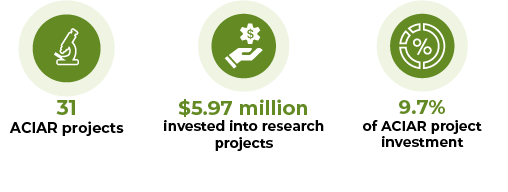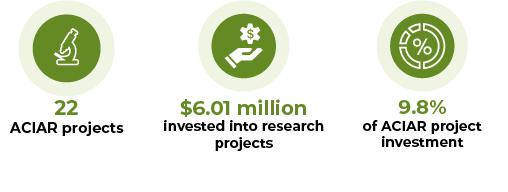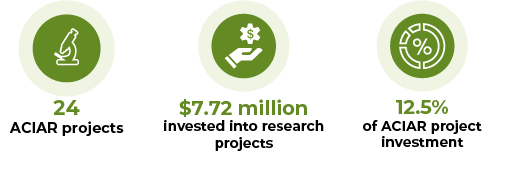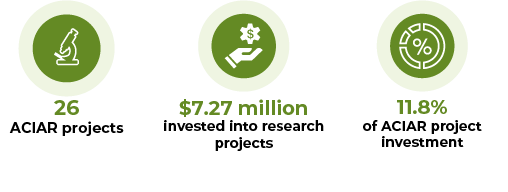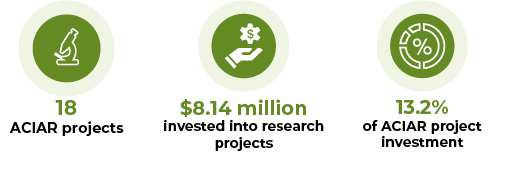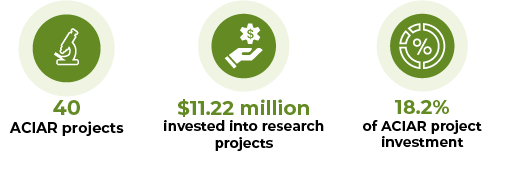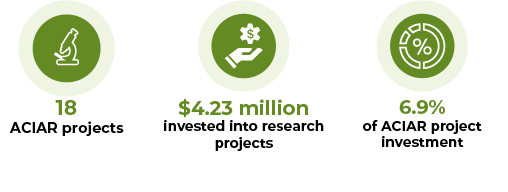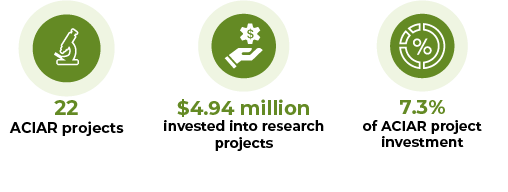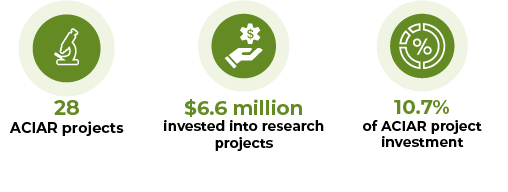Unlocking economic opportunities for farmers
The Agribusiness program works to improve business outcomes for smallholder farmers, communities and industries. It involves research at all points along the agricultural, forestry and fisheries value chains, including inputs, production and harvest, and post-harvest activities of packaging, transport and storage, processing, marketing and sales.
